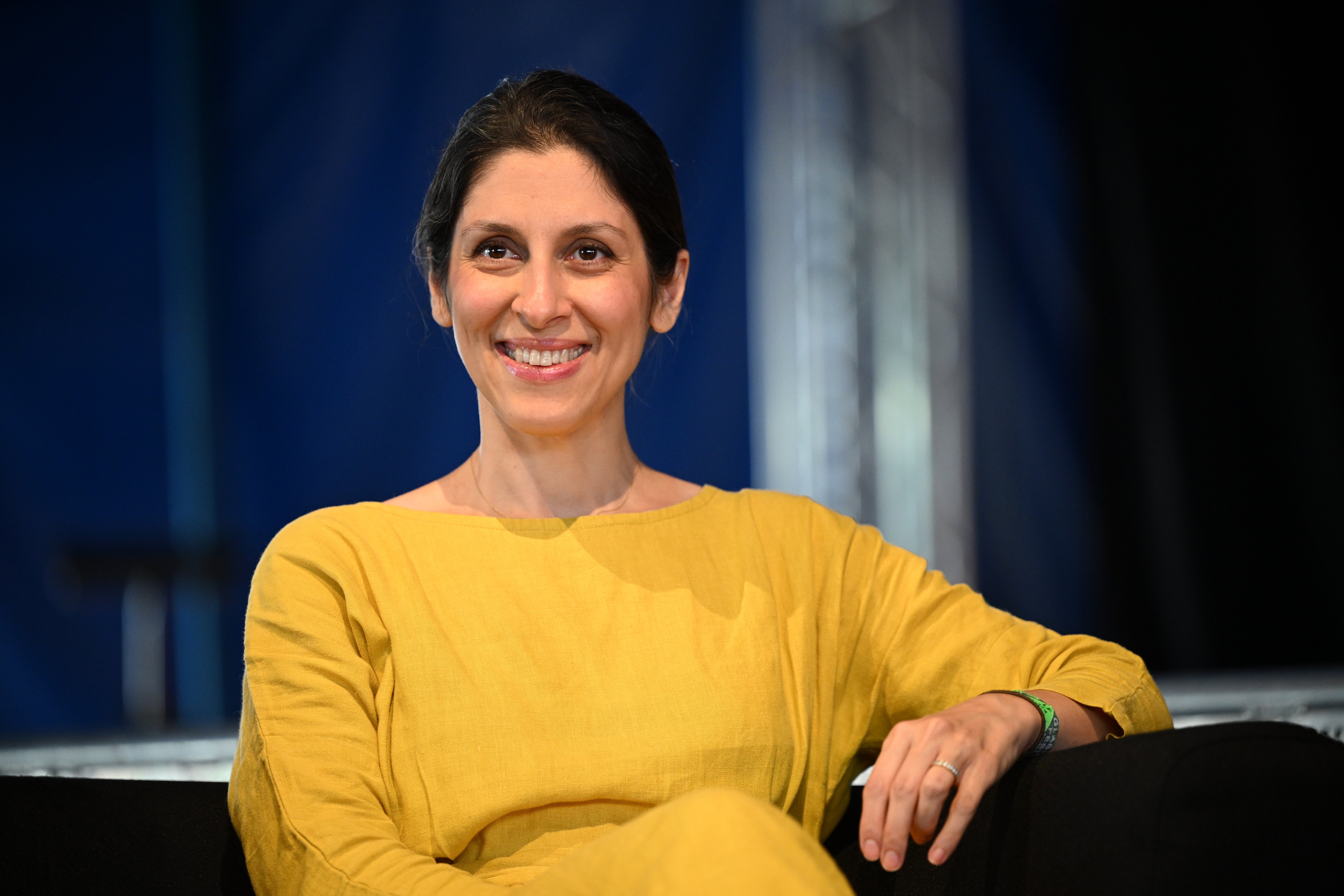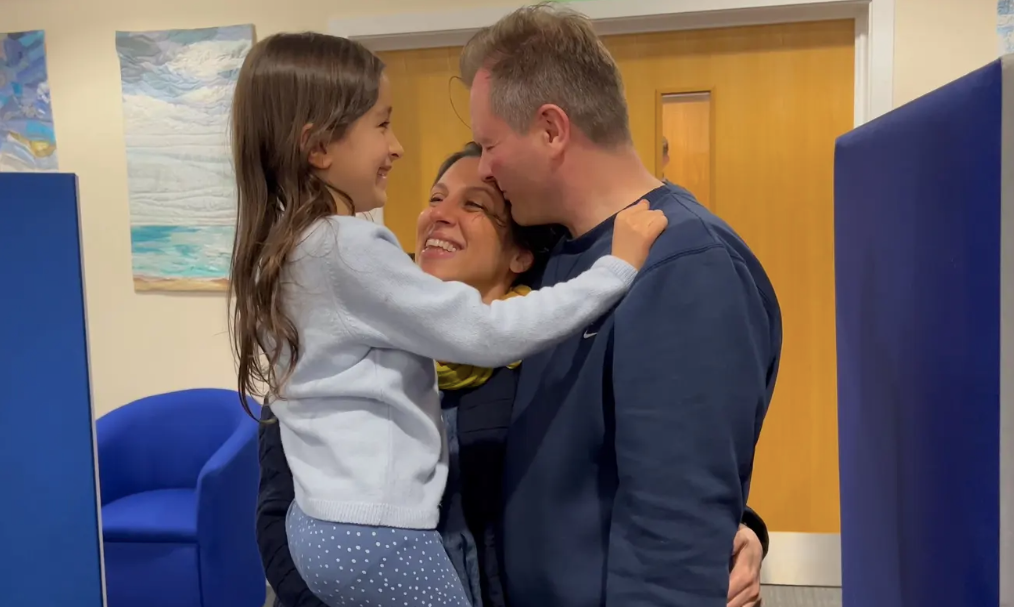Nazanin Zaghari-Ratcliffe reveals sewing dresses for daughter helped her survive six-year prison ordeal
Nazanin Zaghari-Ratcliffe used wool from fellow inmates who were about to be released and called it the ‘freedom pinafore’

Nazanin Zaghari-Ratcliffe has revealed that she sewed “freedom dresses” for her young daughter Gabriella to help her survive the ordeal of six years in a brutal Iranian prison.
The mother-of-one was falsely accused of espionage in 2016 when she was visiting family in Iran and was later imprisoned in the notoriously harsh Evin prison in Tehran.
During the following six years, in which her husband Richard looked after their daughter alone back in the UK, Ms Zaghari-Ratcliffe said she would spend her hours endlessly knitting to pass the time.
“For months, I collected little bits of remaining wool from those who were about to be released,” she said. “Using them, I crocheted small flower motifs in various colours and by joining them together, I made a pinafore for my baby girl.
“I called it the ‘freedom pinafore’ because the wool I used once belonged to those who were freed.”
She said friends sent her favourite fabrics from the Liberty London department store, which she would use to stitch clothing and make gifts for her fellow inmates.

“I was always a huge fan of Liberty fabric and over time, had picked up some classic prints back in London but I never could bring myself to use any of them; they were too good to be cut up,” she told Harper’s Bazaar.
“Somehow though, I managed to get them sent over to me from London to Evin. Prison had taught me there was no such thing as a special moment; the only special moment we have is now.
“Ironically, the Liberty fabric that I had bought as a free person landed in my hands when I had no liberty at all, and connected me to the days I was free.”
After she was transferred from solitary confinement to the general inmates ward in Evin prison, Ms Zaghari-Ratcliffe said she and other prisoners spent hours crafting to pass the time.
“The longer you spent in solitary, the more you appreciated life in the general ward,” she said. “Sewing, knitting, woodwork and other forms of creativity affirmed a different world from prison.”
She said that now she has been released, and is back living in the UK, she still “takes refuge” in sewing when life is difficult.
“We eventually leave prison but our story remains,” she said. “Now, even living in freedom, the first place I take refuge when life is tough is my little sewing corner at home.”
Ms Zaghari-Ratcliffe was freed in March 2022 after the British government repaid a debt of almost £400 million to Iran over a decades-long deal for tanks.
Her husband Richard campaigned tirelessly for her release in the six years she was at Evin, including carrying out a hunger strike outside the Foreign Office in 2021.
Join our commenting forum
Join thought-provoking conversations, follow other Independent readers and see their replies
Comments
Bookmark popover
Removed from bookmarks